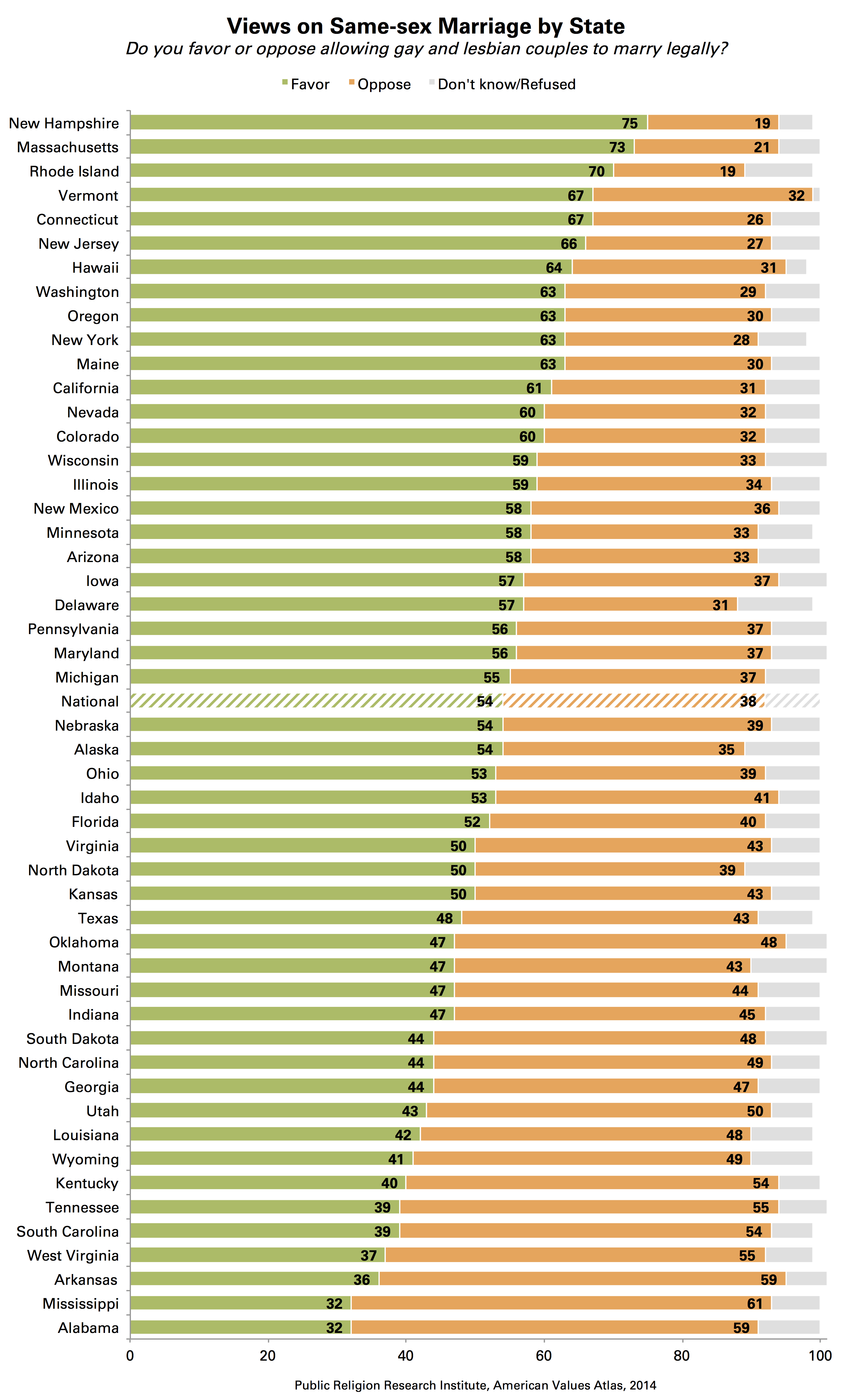Indiana's law goes farther than any other law for several reasons. First, most such acts reflect acts of government that impinge on an individuals exercise of religion. And they do not superseded existing anti-discrimination protections.
Indiana's law applies not just to individuals, but to for-profit companies, and not just to government interactions, but to interactions between citizens. It is broad and sweeping.
Ed Kilgore writes,
So Indiana is trying to create a genuinely plenary zone of sanctioned discrimination, including every kind of entity and protecting discriminators from legal action from any direction. The first point carries it beyond SCOTUS interpretation of the federal RFRA in the Hobby Lobby case as covering "closely held" corporations, but not all for-profits. And the second means Indiana isn't just protecting religious folk against the all-powerful government, but against the very targets of their discrimination.He adds,
If Pence was more adept as a communicator, he might have tried the "grand bargain" defense: "religious liberty" protections are in effect a surrender by cultural conservatives who will stop trying to ban things they don't like in exchange for an assurance they can quietly live their lives according to their faith. But Indiana's example is actually blowing up that argument as well. The more they talk about it, advocates of broad-based "religious liberty" laws sound like those conservatives back in the day who offered to accept the Civil Rights Act of 1964 if the public accommodations section was removed.In 1964, a South Carolina Barbeque owner named Maurice Bessinger argued that his religious beliefs meant that he did not have to serve blacks in his restaurants (and he also felt slavery was religiously justified. The federal court found that religious beliefs did not justify discriminatory behavior in public accommodation. Why is this different?
Oh, yeah. Teh Gayz.

